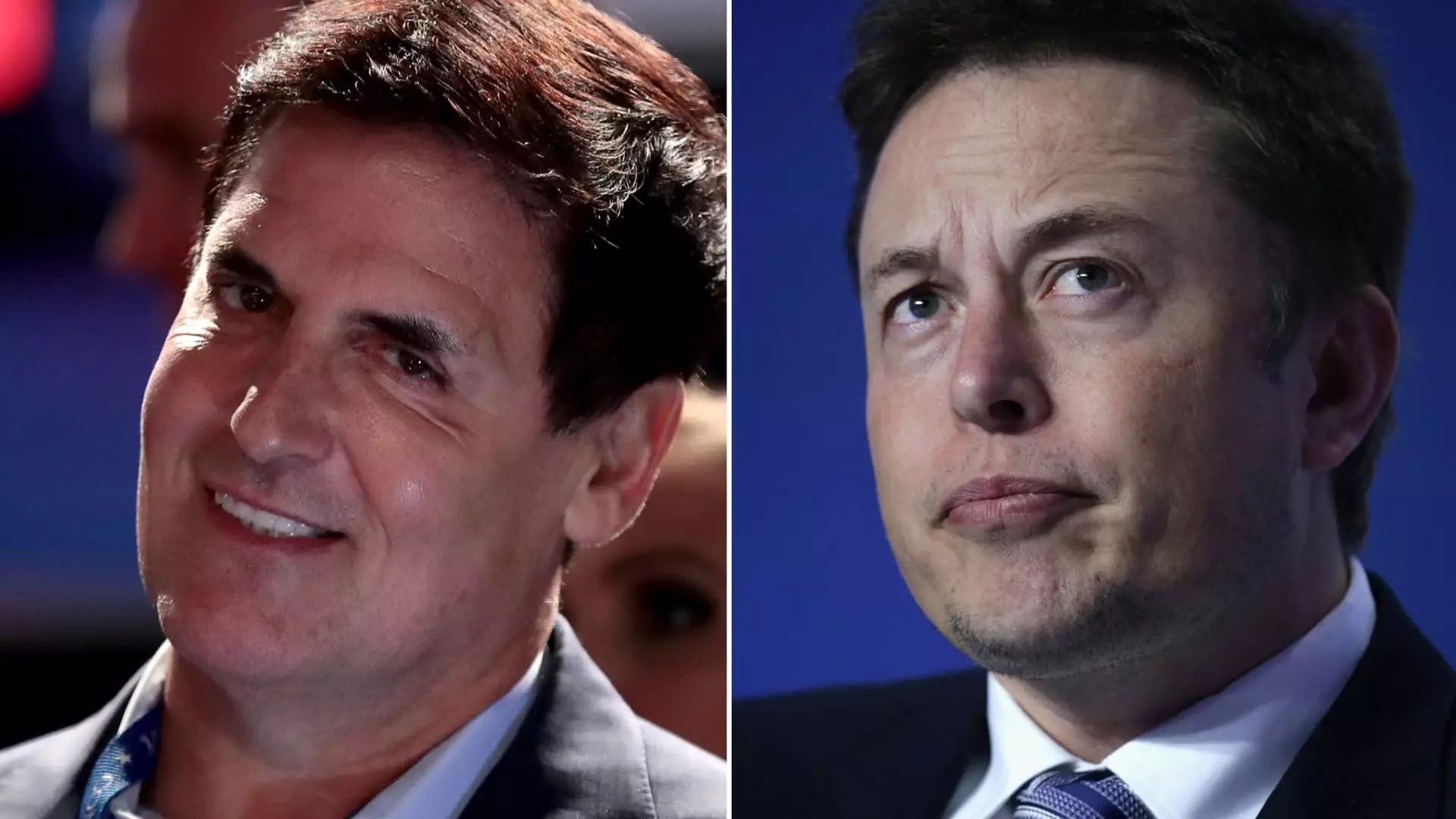In a landscape where business and politics increasingly intertwine, billionaire investor Mark Cuban recently issued a notable caution to fellow billionaire Elon Musk regarding potential political alignments, particularly with former President Donald Trump. In a post on the social media platform X, Cuban expressed concern over Musk’s fervent support for Trump, suggesting that such allegiance could lead to a miscalculation. Cuban’s warning taps into the broader theme of political loyalty, signaling that even the most influential figures in business must navigate their political alliances carefully.
Cuban highlighted a crucial point: personal loyalty in the political arena is often fleeting. He advised Musk that there may come a time when he will be in desperate need of support from Trump, only to realize that Trump’s allegiance is ultimately to his own interests. This observation underscores a fundamental truth in politics—dependency on a leader or movement can backfire, particularly when the individual in question has a history of prioritizing self-interest above all else.
Musk’s endorsement of Trump marks a significant shift from previous criticisms he levied against the former president in 2022. This sudden pivot raises questions about the motivations behind his support and the influence of political winds on his business decisions. Musk’s assertion that the upcoming election might be the “last election” if Trump loses hints at a fear-based narrative that could resonate with certain voter demographics but also indicates a willingness to embrace controversial ideologies.
Cuban’s response not only reflects his concerns for Musk but also reveals a growing divide among influential business figures regarding their political affiliations. While Musk has seemingly aligned with Trump’s populist messaging, Cuban has positioned himself as an advocate for Vice President Kamala Harris and her economic reforms, highlighting the contrasting visions for America’s future within the elite business community.
Cuban’s commentary suggests a deeper analysis of the transactional nature of political support. When billionaires support a presidential candidate, they often seek influence or favorable policies that can protect their interests and promote their business agendas. However, the reciprocal nature of this relationship is dubious; Cuban implies that Musk may find himself at a loss when attempting to extract favors from Trump.
Cuban’s engagement with Harris’s administration further complicates the narrative. As he champions Harris’s economic policy initiatives, including raising corporate tax rates—a move that has attracted skepticism—he simultaneously positions himself as a potential candidate for leadership roles within key regulatory bodies such as the Securities and Exchange Commission (SEC). Cuban’s ambition within this framework suggests a strategic approach to wielding influence in politics while simultaneously safeguarding his business ventures.
The Future of Political Leadership
In striking contrast, Musk has expressed aspirations to establish a government efficiency commission should Trump secure a second term. This ambition aligns with Musk’s long-standing advocacy for reducing bureaucracy and increasing operational efficiency in government. Trump’s endorsement of this proposal creates an intriguing dynamic as it hints at potential power shifts in the event of a Trump reelection.
Yet, the risks involved in this approach are substantial. While Musk may see himself as a reformer, the reliance on a potentially unreliable political ally like Trump could jeopardize his standing and impact his ventures across multiple industries. The unpredictability of political allegiances could leave Musk exposed if Trump’s administration does not deliver on promised cooperation or policy support.
Ultimately, Cuban’s warning serves as a pertinent lesson for everyone in the business world regarding the necessity of measured political involvement. The implications of aligning one’s business interests with a political figure can lead to complex repercussions, both expected and unforeseen. As business leaders navigate this delicate landscape, they must remain vigilant about the transient nature of political loyalties and the potential consequences of their endorsements.
As both Musk and Cuban continue their respective pursuits, their experiences may serve as case studies in the intersection between business acumen and political strategy, illustrating the delicate balance between ambition, loyalty, and the unpredictability of the political environment.

Leave a Reply